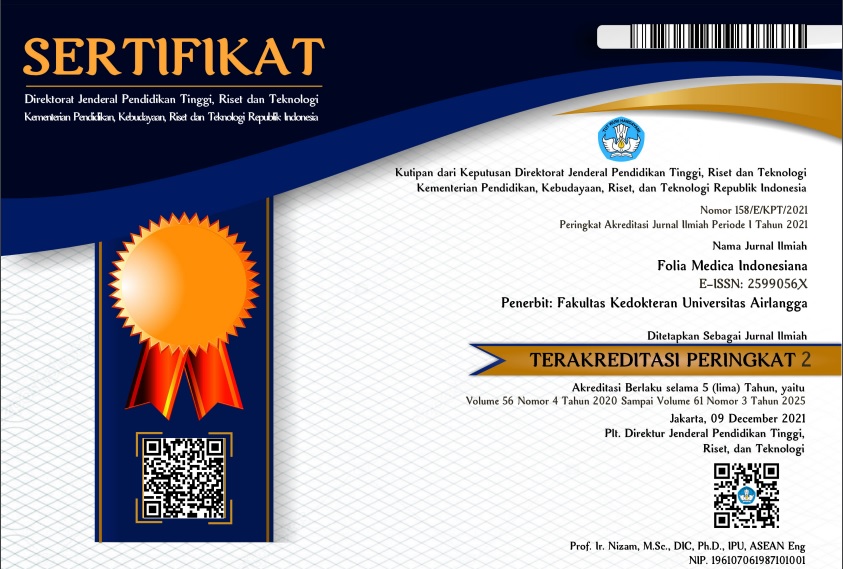Abstract
Dengue virus (DENV) is mosquito-borne viral diseases, transmitted by the vector mosquitoes such as Aedes sp. Infection with four serotypes of DENV-1 to 4. Indonesia, dengue haemorrhagic fever (DHF) was first recognized in 1968 in the cities of Jakarta and Surabaya. In 2007, we started DENV surveillance in Surabaya supported by the joined program of the Japan Initiative for Global Research Network on Infectious Disease (J-GRID) established the Indonesia-Kobe University Collaborative Research Center for Emerging and Reemerging Infectious Diseases (CRC-ERID). The results of serotype and genotype, in Surabaya and Bangkalan are similar with previous result in Indonesia, but especially in Bogor similar with Japan 2014. This study showed the importance of continuous virus surveillance in dengue endemic areas, in order to understand the dynamic of dengue infection disease in Indonesia.
Keywords
DENV, Surveillance, Surabaya, Bogor, Bangkalan
First Page
296
Last Page
301
DOI
10.20473/fmi.v56i4.24640
Publication Date
12-31-2020
Recommended Citation
Soegijanto, Soegeng; Sucipto, Teguh Hari; Mulyatno, Kris Cahyo; and Churrotin, Siti.
2020
Epidemiology Study of Dengue Virus In Surabaya, Bogor, and Bangkalan, Indonesia 2008-2018.
Folia Medica Indonesiana. 56,
4 (Nov. 2024 ), 296-301.
Available at: https://doi.org/10.20473/fmi.v56i4.24640






